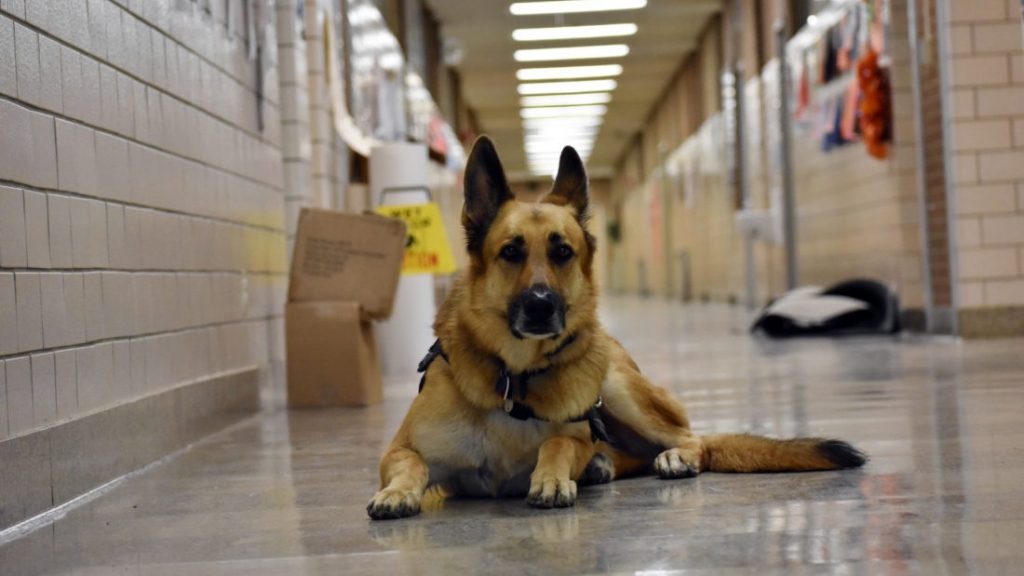How Dogs Are Boosting Student Literacy In This Major City
The comfort dog program in this city is going above and beyond to boost reading literacy with four-legged friends.

More schools across the nation are turning to man’s best friend for help getting schoolchildren back on track. In Michigan, officials shelled out part of the department of educations COVID relief funds to purchase therapy dogs for schools. These trained dogs are said to help students cope with social and emotional issues in a big way, but New York City’s comfort dog program is taking things a step further. Not only do their trained canines offer therapeutic ease for students, but they also are helping boost literacy.
Dogs have been found inside various schools throughout The Big Apple since 2016 as a means to offer emotional well-being to students. But their roles inside the classroom are evolving. Now, the comfort dog program is continuing to expand, and today, nearly 52 other New York City schools have similar dogs within their halls.

Chip is one such dog in the comfort dog program that is going beyond his duties of being a therapy dog, helping students boost literacy. According to Chalkbeat, the one-and-a-half-year-old Shih-poo works alongside small groups of third graders on phonics lessons. For one activity, Chip uses his nose to toss a large die with words on each side. When it lands, students read the word aloud and instruct Chip to pick up a bucket with the word’s corresponding digraph.
Meredith Loftus, the class’s literacy coach and handler of Chip when he is in school says that it’s a great learning experience for both the students and the dogs. It isn’t always easy to get these young students enthusiastic about being pulled from class to work on phonics. But the comfort dog program adds an incentive to many that are struggling to read. Kirsten Kinsella, the head of the dog initiative says that the pooches make learning a lot more fun for students.
The comfort dog program is rapidly growing in interest around the city. Kinsella says she receives inquiries from educators every single day. Now, she says nearly 500 schools are looking to participate. To enroll in the program, educators can apply with a dog that is at least one year old. They are required to participate in a six-hour training program run through the Good Dog Foundation.

Furthermore, completing the training doesn’t necessarily guarantee acceptance into the comfort dog program. The program also looks at the other factors, such as how the dog responds inside the school environment. The program thoroughly examines the dog’s behavior around strangers, as they must exhibit zero signs of aggression. The pooches aren’t the only ones scrutinized during the training process, as handlers must display an ability to read their dogs’ stress signals as well.
Implementing these programs into schools couldn’t come at a better time. The comfort dog program’s canines offer social and emotional support, and an overall eagerness to boost academics. Student mental health issues have been on the rise for a long time, but they were largely exasperated with the onset of the pandemic. Similar patterns were seen in reading literacy when prolonged lockdowns were said to have resulted in a significant loss in children’s reading abilities. Little by little, four-legged friends look to fix these issues.



